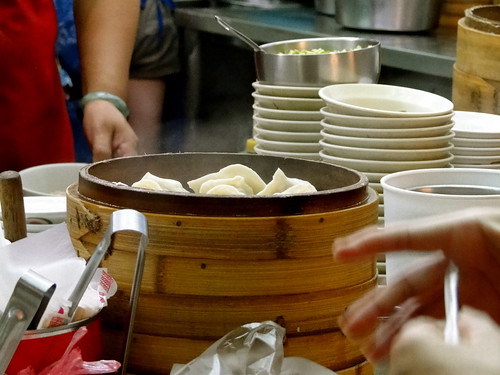









...I know you’re very busy, Mr. Harper. We’re all busy. Meditating monks in their cells are busy. That’s adult life, filled to the ceiling with things that need doing. (It seems only children and the elderly aren’t plagued by lack of time—and notice how they enjoy their books, how their lives fill their eyes.) But every person has a space next to where they sleep, whether a patch of pavement or a fine bedside table. In that space, at night, a book can glow. And in those moments of docile wakefulness, when we begin to let go of the day, then is the perfect time to pick up a book and be someone else, somewhere else, for a few minutes, a few pages, before we fall asleep. And there are other possibilities, too. Sherwood Anderson, the American writer best known for his collection of stories Winesburg, Ohio, wrote his first stories while commuting by train to work. Stephen King apparently never goes to his beloved baseball games without a book that he reads during breaks. So it’s a question of choice...
- - -“The Prime Minister did not speak during our brief tribute, certainly not. I don’t think he even looked up. The snarling business of Question Period having just ended, he was shuffling papers. I tried to bring him close to me with my eyes.Who is this man? What makes him tick? No doubt he is busy. No doubt he is deluded by that busyness. No doubt being Prime Minister fills his entire consideration and froths his sense of busied importance to the very brim. And no doubt he sounds and governs like one who cares little for the arts.But he must have moments of stillness. And so this is what I propose to do: not to educate—that would be arrogant, less than that—to make suggestions to his stillness.
For as long as Stephen Harper is Prime Minister of Canada, I vow to send him every two weeks, mailed on a Monday, a book that has been known to expand stillness. That book will be inscribed and will be accompanied by a letter I will have written. I will faithfully report on every new book, every inscription, every letter, and any response I might get from the Prime Minister, on this website.”
Yann Martel
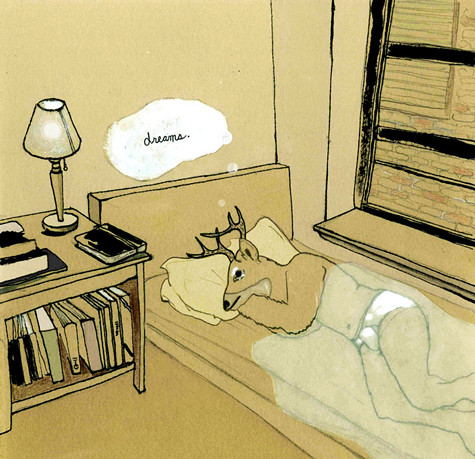

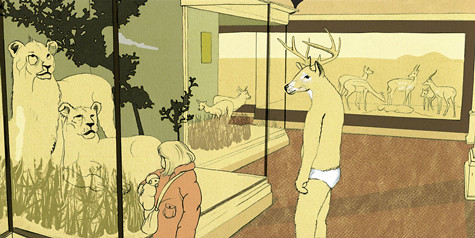
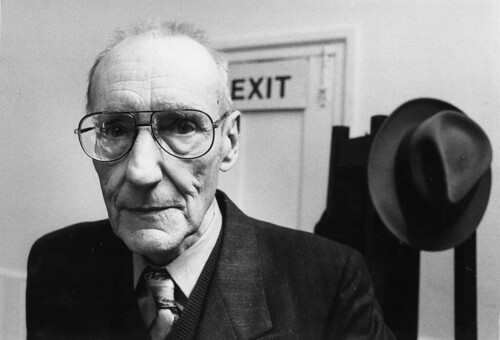
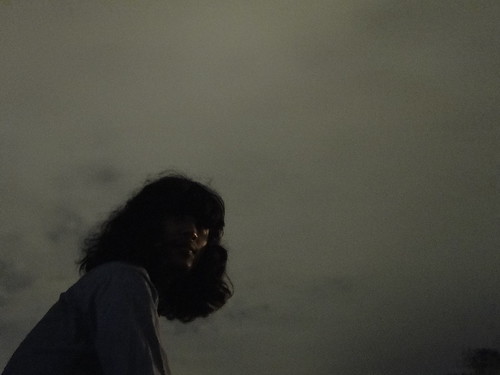


there is a nightingale and a night; there is a secret duel on the terrace. (though almost entirely imperceptible, there are occasional curious contradictions, and there are sordid details.) the characters of the first act reappear in the second - under different names.wacky aphorism for bangkok? yes. amorphous, amok with vice and indulgence, labyrinthine, impatient, insomniac, these savages tout sweetened-condensed milk laced nescafe as real coffee! fumes assail nostrils every third step. gleaming, ancient temples appear from nowhere. you meet people, unbelievable people. proof: last saturday we'd no sooner plopped down in a dime a dozen storefront chosen solely because it advertised cheap beer, when bjorn ferm, 1968 modern pentathlon olympic gold medalist, began to regale us with stories of his famous-to-him acquaintances and sing the praises of unicorn - the best all-female rock band in thailand.

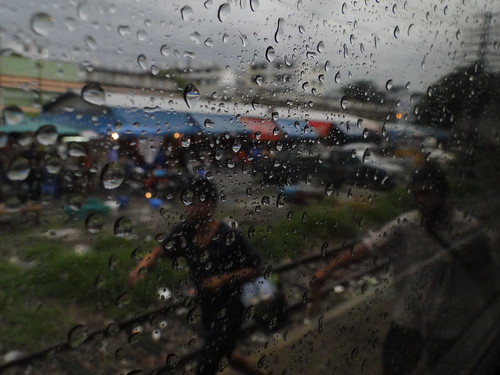
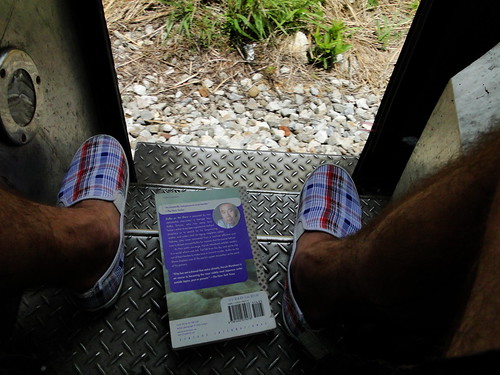
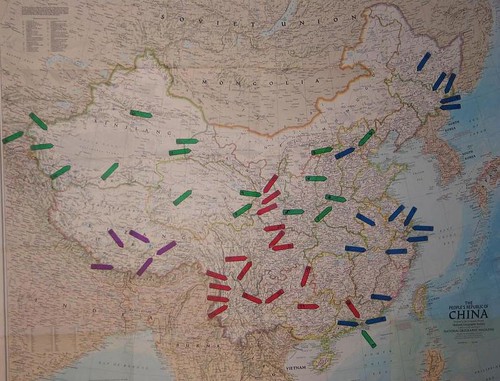
BEIJING — Domesticated pigeons of this city, take note: Until Oct. 1, you are prohibited by government edict from flying over the center of China’s capital.
Do not take it personally, however. The government is preparing to observe the 60th anniversary of the People’s Republic of China with a parade that will make 76 trombones look like a child’s plastic kazoo. And nothing — not unauthorized window-peeping, nor marchers’ mental health, nor even the chance that pigeons might muck up displays of aerial might — is being left to chance.
China’s government at times resembles an exasperated parent trying to rein in a pack of rebellious children. Its edicts are persistently flouted by censor-dodging Internet users, wayward local officials and rioting Uighurs.
But when it comes to the impending National Day celebration in Beijing, the government appears fully in control. When swarms of soldiers, throngs of tanks and flocks of floats roll past Tiananmen Square on Thursday, 10,000 police officers and security guards will monitor Beijing street corners and checkpoints for evidence of potential party-spoilers. As many as 800,000 volunteers have also been enlisted to help maintain security.
Knife sales have been banned in at least some stores. Beijing’s international airport will be closed Thursday for three hours. Along the parade route, the authorities have forbidden parade-watchers from opening windows or standing on balconies.
Three journalists from the Japanese Kyodo news agency said that when they stood on a hotel balcony to cover a Sept. 18 parade rehearsal, the authorities stormed into the room and assaulted them. (continue reading)
Two thousand years ago, contemplating the relentless flow of time, Confucius gazed down at a river and sighed, "What passes is just like this, never ceasing day or night ..." In China, time can feel both frozen and unstoppable at the same time. The Tiananmen massacre that 20 years ago ravaged Beijing, killed thousands of unarmed citizens, and altered the lives of millions, seems now to be locked in the 20th century, forgotten or ignored, as China continues to hurtle blindly towards its future. (continue reading)this makes me wonder about change. and fear. and control. reading ma jian's red dust: a path through china this past week i couldn't help feeling vicariously stifled by the impositions of the chinese government upon its citizens in the 1980s (in addition to what we hear about today). ma writes in such a way that i felt as if my own inherent-feeling freedoms were being manacled, and yet i exalted with the freedom and transience that ma created for himself as he wandered through cities, villages and wilderness, alternating between such diametrics as honored guest, fugitive and foreigner in his homeland. red dust is blue highways with lunatic stubbornness. having cast off not only his job and home, but also refusing to turn back when he is utterly without money, food, or contacts, ma becomes a modern nomad. despite often lamenting that he must keep going because he (his life) doesn't have a destination, ma attains freedom by thinking and choosing for himself - acts that single him out as a threat to the perceived harmony of new communism. by simply wandering across his home country, ma was revolting against the strongholds of tradition, conservativism, and leadership-imposed fear. it's unfortunate, though not surprising, that ma's books are banned in china today.
i leave the asphalt road and turn left down a dusty track that takes me through rolling sand dunes. a few hours later, the sun starts to sink and i realize that i might not make it to anxi before dark. i see a water tower near the horizon, and a ragged line of roofs. trucks move like boats across the heat haze behind. as the sun sinks lower, everything glows with a golden light. i drop my bag and lie down on my back in the sand. no wonder horses roll to the ground when they are tired. i feel better with my hooves in the air. i kick off my shoes and let my steaming toes suck the wind. then i open my bottle, drink some water and splash some onto my face. my mind turns yellow. i hear a ringing in my ears - perhaps it is the noise of the sunlight, or the desert wind blowing through the telegraph wire. the water i swallowed charges through my veins. eighty percent of my body is water. my cells float in a sea. i am floating, too, but my ocean is larger than theirs. i have the sky. i have freedom.
i jump to my feet, check my compass and continue west, chanting a verse from leaves of grass.
allons! to that which is endless as it was beginningless,
to undergo much, tramps of days, rests of nights,
to merge all in the travel they tend to, and the days and nights they tend to,
again to merge them in the start of superior journeys...allons, ma jian, allons.(photo)
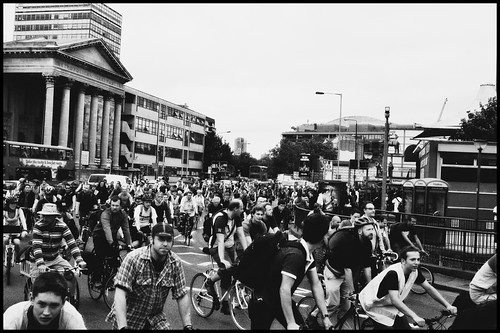

Being a conscientious consumer in the modern world means being made acutely aware, time and again, of your own hypocrisy. You can use paper instead of plastic, dutifully maintain your recycling bin, buy organic and locally produced foods when possible, replace all the bulbs in your house with energy-efficient fluorescents, and still leave a massive carbon footprint from food packaging, new clothes, diapers, electricity, paper, transportation, and the hundreds of pounds of trash every person generates annually. The value of No Impact Man, a compelling and suitably exasperating documentary about one family’s attempt to not harm the environment for a year, is that it forces viewers to reflect on their own casual consumption and waste. The experiment is inevitably compromised—and as a self-promotional venture, it just spreads more waste—but that only makes the film more engaging and provocative.
Like a literary Morgan Spurlock, author Colin Beavan devised his “No Impact Man” persona as a high-concept hook for a blog and a book about his family’s attempt at spartan living in the middle of New York City. (full article)


It was raining in the quadrangle, and the quadrangular sky looked like the grimace of a robot or a god made in our own likeness. The oblique drops of rain slid down the blades of grass in the park, but it would have made no difference if they had slid up. Then the oblique (drops) turned round (drops), swallowed up by the earth underpinning the grass, and the grass and the earth seemed to talk, no, not talk, argue, their incomprehensible words like crystallized spiderwebs or the briefest crystallized vomitings, a barely audible rustling, as if instead of drinking tea that afternoon, Norton had drunk a steaming cup of peyote.
But the truth is that she had only had tea to drink and she felt overwhelmed, as if a voice were repeating a terrible prayer in her ear, the words of which blurred as she walked away from the college, and the rain wetted her gray skirt and bony knees and pretty ankles and little else, because before Liz Norton went running through the park, she hadn’t forgotten to pick up her umbrella.


